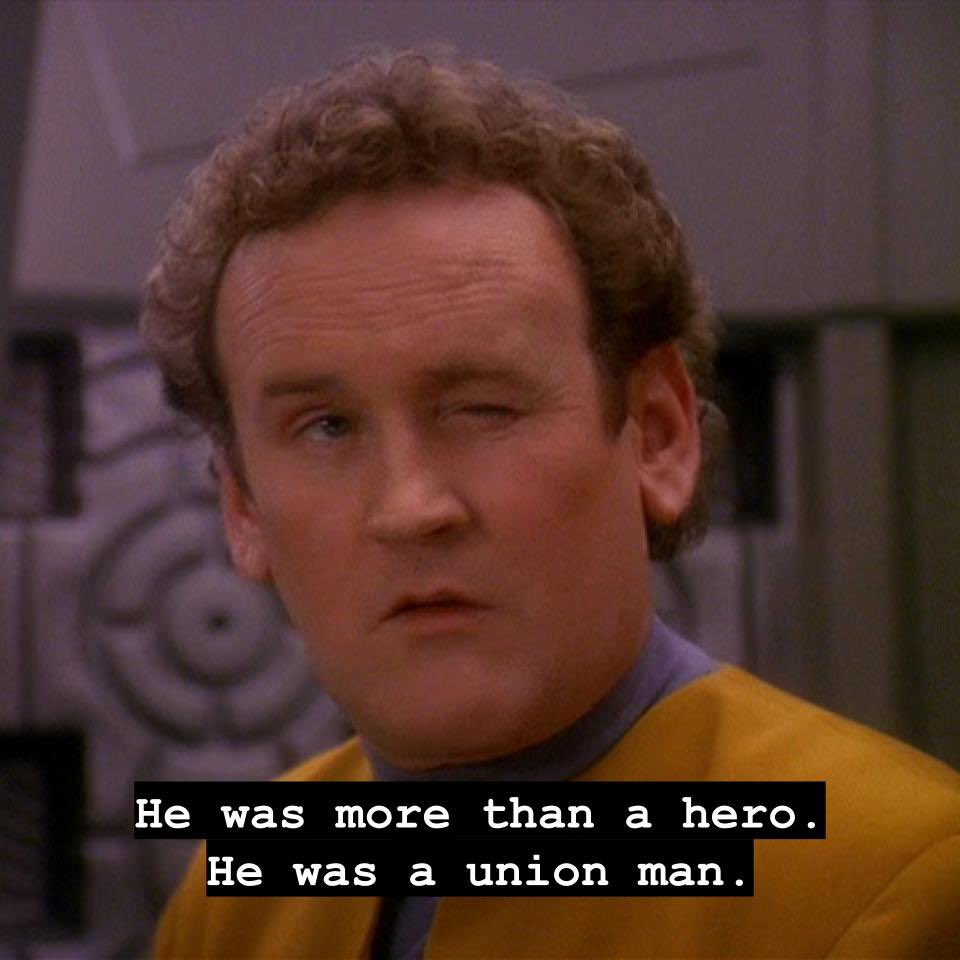I hate Elon maybe even more than the next guy, but there are some major exaggerations here:
Starlink makes tons of maneuvers to avoid collisions: https://www.space.com/starlink-satellite-conjunction-increase-threatens-space-sustainability
Starlink is at an orbit that they are quickly returning to Earth and burning up on re-entry: https://cybernews.com/news/starlink-lost-200-satellites/
I appreciate the fact-check!
Yet you didnt bother doing it after reading, let alone before posting misinformation
I’m in the space industry and I can tell you that anyone pretending to be an authority on orbital mechanics on the internet is full of shit. I’ve taken entire classes called “advanced orbital mechanics.” That shit is wildly hard, vaguely inaccurate, and so slow that you can only do it effectively on a computer. Even then you have to decide which variables to throw out because you if you use them all you won’t be able to calculate predictions on every satellite in time for them to be useful. Then you have to take the predictions, predict how wrong they are, and predict again based on those predictions if two satellites will run into each other.
The truth is that nobody knows if Kessler Syndrome is even real. I personally fall on the side of thinking it’s nonsense, there are too many variables that would have to go wrong all at once. It’s like being worried about winning the lottery. There have been multiple catastrophic on orbit conjunctions that have created thousands of pieces of debris. Still no Kessler Syndrome. Even in a nightmare scenario I can only see it affecting one orbital regime. The odds of Starlink effecting the orbit that GPS is in is effectively not possible. But this is not a solved field and I am not remotely an expert, I’m just tired of people who don’t know a thing about the field thinking they’re experts because they have a JWST desktop wallpaper and have 300 hours in KSP. The real experts are ancient old men and women who have been doing orbital predictions for 40 years and I’ve seen them get into yelling matches about this sort of thing.
This post got away from me but the point is this shit is so involved it effectively can’t be fact checked because you could come to whatever conclusion you want.
If there’s anything I’ve noticed using Lemmy for news (before that I didn’t really have a general news source) it’s that the headline is always wrong, and the article almost always corrects it—but all of the comments are about always just people who read the headline and act as if it’s gospel with even reading the article.
If the sites didn’t put it all beyond pay walls it might remedy that problem a little bit. Force people to jump through hoops just to read shit journalism and they will do the easier thing: debate headlines.
Elon Musk is a total fool and an idiot, but like others said, this article is hogwash. The satellites do not pose a risk for Kessler Syndrome due to their LEO. They will fall to earth and burn up. They also maneuver to avoid collisions. It is highly unlikely to contribute anything at all to Kessler Syndrome.
Additionally, how are they comparing carbon footprint? Article is behind paywall. The internet infrastructure on earth didn’t pop into existence out of thin air, carbon neutral. The trucks and ships used to lay wire, the mining and manufacturing of everything involved in the process, creates carbon for both. The carbon that would be created to provide access to rural areas as an alternative. If you are going to count the carbon to make and fuel spaceships, you must also count the carbon to make the ships that lay and maintain undersea cables and trucks that maintain cable on land. The SpaceX ships are largely reusable as well, so the carbon to make the ships also needs to be split among its voyages to space just as a ship at sea makes multiple trips.
Even if they’re in low earth orbit an impact could spread pieces into higher orbit due to the energies involved. That could in turn impact other satellites at a higher orbit and just keep going.
Quantum mechanics also says that all the air in my lungs could collapse to a single point, but on the grand scale, these things don’t happen. Risk analysis requires evaluation of probabilities.
Some of these people haven’t heard of ORM and it shows.
It is very improbable that there will be a collision caused by a starlink satellite. While Musk is certainly an idiot who can’t be trusted, there are intelligent people who work for SpaceX who have considered all this and more before launching their satellites.
It’s like giving billionaires access to do reckless shit that can literally impact humanity’s future may be problematic.
Wow
But come on, think about all the jobs it created!
A handjob is still a job, officer!
I’d like you all to consider that places where you’d use starlink are also significantly more than 30x farther away from civilization than the average land-based internet user.
Out in middle of nowhere Ohio, the only options are satellite and I’ll be damned if I’m doing to give Dish or Hughes net more money for worse speeds. Starlink is it until they actually run fiber out here.
Are those places connected to the power grid? If yes then there is no reason they can’t have fiber Internet. If we can electrify we can internetify.
That’s one of the problems with Internet access being provided by private corporations. They’re never going to service those people, because it’s not profitable to run a hundred miles of fiber for one guy in Wyoming, unless he’s crazy rich and pays for it himself. It’s the same issue the mail has, one of the many reasons the USPS is so important
Definitely, that’s what we should do. But that will have a decent carbon footprint and more importantly our government (at least in the US) has utterly failed rural Americans (and more!) in terms of internet roll out.
Think of all the pollution that will be caused running new fiber cable to bumblefuck nowhere so 1 additional person or family can access the internet. It doesn’t make any more sense than Starlink, much less sense at that.
No, many are not on the power grid.
We tried to run fiber everywhere in the US, spent billions of dollars, but it still didn’t get built.
So I don’t really like the idea of defending anything related to Musk, but it’s kind of poor form to compare emissions between Starlink and land-based internet imo. Although they are the same product, they are targeted at completely different users, from what I understand.
Starlink should always be a more expensive and slower technology just because of communication distance, so it shouldnt really be able to compete with land-based solutions (except where telecom is reeeeeally fucking people on price). Starlink is really meant more for edge-cases where telecorps refuse to build infrastructure.
Not only this, but StarLink is a new and rapidly growing service so the number of subscribers is still on a steep upward trend. Comparing carbon/subscriber is going to be inaccurate right now due to the low number of starlink subscribers compared to a more established utility with a stable number of users. StarLink also has more new infrastructure needed than an established utility.
Use cases and costs aside, we should still be open to discussing the pros and cons of these business ventures on the planet. Musk isn’t going to pay up to clean up any mess caused by this, it would be taxes and price hikes around the world in the name of going green and reducing climate impact that get paid by plebs like us.
Starlink should always be a more expensive and slower technology just because of communication distance
That is not correct. The target of Starlink is satellite-to-satellite data routing in as close to a straight line as possible between point A and point B. Even adding the 500Km up and 500Km down, starting at several 1000Kms that’s less distance than going through the network of ground fiber cables.
The speed of light in optic fiber cables is also only 2/3 the speed of light in vacuum (aka: space).
Starlink’s end form is meant to get billions from charging intercontinental high frequency traders for a split second advantage.
Starlink isn’t meant for the edge cases, the edge cases can not make it profitable. The edge cases are edge cases.
Also blotting out the sky with wasteful satalites isn’t a good solution to “the free market wont build infrastructure because its broken.” Its just another aspect of it being broken and the entire planet has to suffer from it.
I am not super well-researched on this, so I might be mistaken, but their market is people who don’t have access to telecom infrastructure, no? I guess it’s not an edge-case just because there are that many people without access? Because I don’t see how they’d be able to compete on price/value with traditional internet providers.
That is not a viable market. It’s far too small for the cost.
And they can’t compete. It’s all backed by investor money. It’s the same disruption business that big tech has been doing for decades. Enter market, subsidize costs with investor money, become incumbent as everyone thinks it’s such a good deal. Raise prices when there’s no other option.
Uber, netflix, Spotify, same plan again. Never better, never competitive, just disruptive.
The government is also broken, the US invested billions of dollars for nation wide fiber, and it still didn’t get built.
“blotting out the sky” is hyperbole and not reality. Those pics of the trains of dots in the sky are temporary and only present in the handful of days after a launch.
ah yes, the “you used flowery language to make a point and thus I’ll decide that everything you said is wrong!” technique
https://iopscience.iop.org/article/10.1088/1538-3873/acf40c
unfortunately Scientists have no power, so they are basically begging these companies to work with them to find solutions and the companies just aren’t doing that. The best they can do is twice the maximum brightness scientists have called for, https://www.nature.com/articles/s41550-020-01238-3 estimates there could be 100,000 of these objects in the sky in the 2030s, 30x the amount we have currently.
astronomy is massively impacted by all of this, just because America refuses to build infrastructure like everyone else does, thanks America. Thanks Musk.
Okay then how come the internet isn’t wired up globally. 2023 and there are still places without
As with everything it is because of money.
From a business point of view why should I spend $1,000 per quarter mile to install a fibre cable that will make maybe $120/month in revenue so my profit per service is maybe $30-$40/m
This is a vastly oversimplified as there are multiplexing technologies like GPON to lower the cost per mile but then there are support costs for faults, backhaul and internet exchange point costs I have to pay.
Then why do they feel right to complain?
Because when a company is not making enough money it is not the fault of sales not meeting expectations, it is the fault of government regulations and administration costs.
I’m actually surprised internet takes 3% the amount of energy it takes to get to space just to run some internet wires. I’d have thought it would be much much lower than that.
But also, starlink completes with geostationary satellite and home cellular connection more than internet over wires. Or even people who didn’t have an option before.
It also says per subscriber of which I assume there are significantly more regular internet users than Starlink
Did your intuition consider the energy required to dig a trench to bury the cale in? Or putting up posts to lift the cable off the ground? I didn’t consider it at first, but neither is done with climate neutral machinery.
The operational requirements are probably pretty similar, the satellites are obviously exclusively solar powered, so no contribution there.
Yeah I did, but cities where most of the internet users are have very short runs, and the cabling is usually installed with the building. Also, I think I’ve usually seen internet run with the telephone wires in rural areas rather than in trenches.
Seems like we can’t go a week between inaccurate posts complaining about Starlink getting traction
It’s almost as if a small percentage of Lemmy posts are generated with chatGPT to supply content.
Still better than the not-so-small percentage on Reddit… 🤷
It looks like the study they linked only addresses the CO2 produced by the satellites, and not the land based providers.
Another interesting thing is that OneWeb and Kuiper (competing satellite internet services) are estimated to have significantly more per-user emissions than Starlink (40-200% more emissions!) (keep in mind that Starlink is predicted to have the most users) while also being estimated to provide a worse service and be more expensive per user. (all taken from the charts on page 6)
They also mention that Starship will likely lower carbon emissions of later Starlink launches significantly.
I’m not quite sure how the much larger Starlink V2 design factors in to all of this, or if they even took it into account.
So you don’t know either?
How do the other satellite competitors even matter here?
They produce similar amounts of carbon, have similar bandwidth, similar # of satellites, and are for a similar demographic.
Edit: they’re just not owned by Elon Musk so no one talks about them.
In order to do what Starlink does, it would take laying millions of miles of cable or hundreds of thousands of cell towers. People need Internet options with better than a couple of Mb of bandwidth, and without draconian usage caps of a few tens of gigabytes. Without space-based systems, it’s economically unfeasible to service large areas with few customers. What do you think the carbon footprint of laying cable to a few remote islands is? Who is going to pay for that boondoggle? Starlink makes it economically possible.
You’re saying we have to fuck up the Earth one way or another so we might as well use rockets to do it?
“We” have no say in it, the guys with private islands who want to “work from home” while forcing their employees into useless offices, are going to fuck up the Earth… so this way they do it a tiny bit less.
It’s not economically possible unless it’s environmentally conscience as well
You know, I would think a progressive community would want to expand internet access to all (which is what Starlink does), so I’m kinda surprised there’s resistance every time it’s brought up.
You would think a progressive community would look at ALL the factors of such an endeavor and analyze them in a real world setting taking into account all the various variables.
Instead of focusing on ONE positive and acting as if all the negatives are automatically outweighed by that one positive.
Instead of focusing on ONE positive and acting as if all the negatives are automatically outweighed by that one positive.
i.e. elon muk bad
First, you really need to look at the definition of progressive, because its for sure not: “being in favour of bringing tech to more people people even if it has disastrous consequences for everyone else”. Second, there are other people doing way better job at expanding internet access to everyone, for example in spain: https://conectate35.es/ where they have internet for 35 euros a month, in any part of the territory with 100mbps download speed without needing to clog the space with new satellites for Elon’s personal reasons, without needing to be constantly building new rockets, without making the pockets of Elon even larger. That is something that is actually bringing internet to actual people that needs it at a reasonable price, with the state paying for the equipment and installation in most cases. Obviously could be even better, but its actually helping real people.
Spain isn’t the market for Starlink.
Try something a little more rural.
Are you even serious? Maybe try looking at a map of spain, there are plenty of rural areas that are loosing population and leaving old towns completely deserted because they lack internet connection and are hours away from any relevant city and shops, you can read about the empty Spain https://www.theguardian.com/world/2019/apr/22/empty-spain-government-urged-to-act-as-towns-fade-from-map with a simple search instead of trying to talk about stuff you dont even know, also btw, conectate 35 is the same concept as starlink, which is satellite driven internet for rural areas, but its way cheaper, sustainable and isnt managed by a piece of shit. https://interactive.guim.co.uk/uploader/embed/2019/04/spain_pop-zip/giv-3902luNkorAsXraI/Spanish-population-change-inArticle_620.png
Article without paywall: https://archive.ph/ESiXk
They just don’t care. If they could earn a trillion knowing that the gain would destroy the planet in 10 years, they would. They’re out of control, and the states on their knees to beg their money.
It’s hilarious watching lemmy’s hatred for elon musk turn them into luddites
This sub needs a fuckin identity already.













